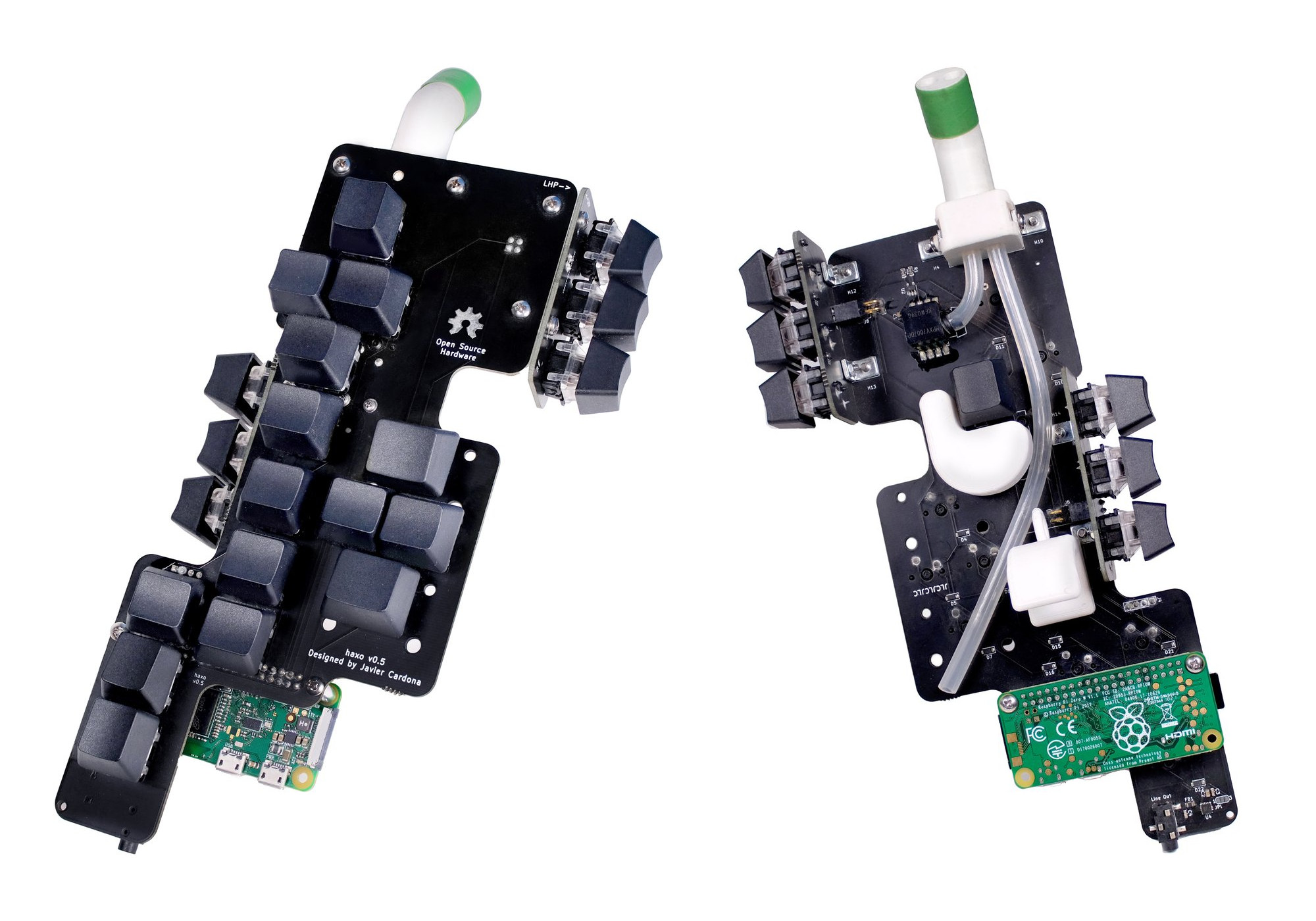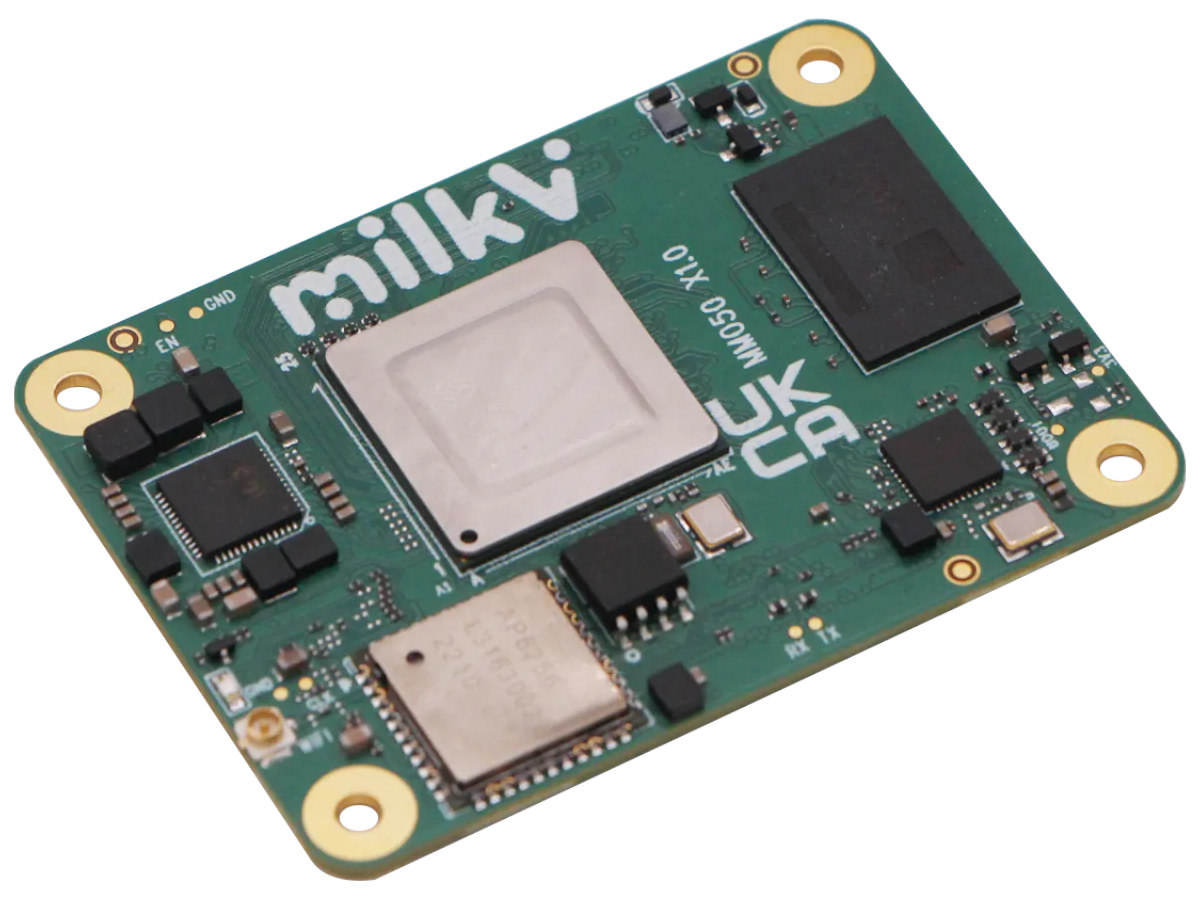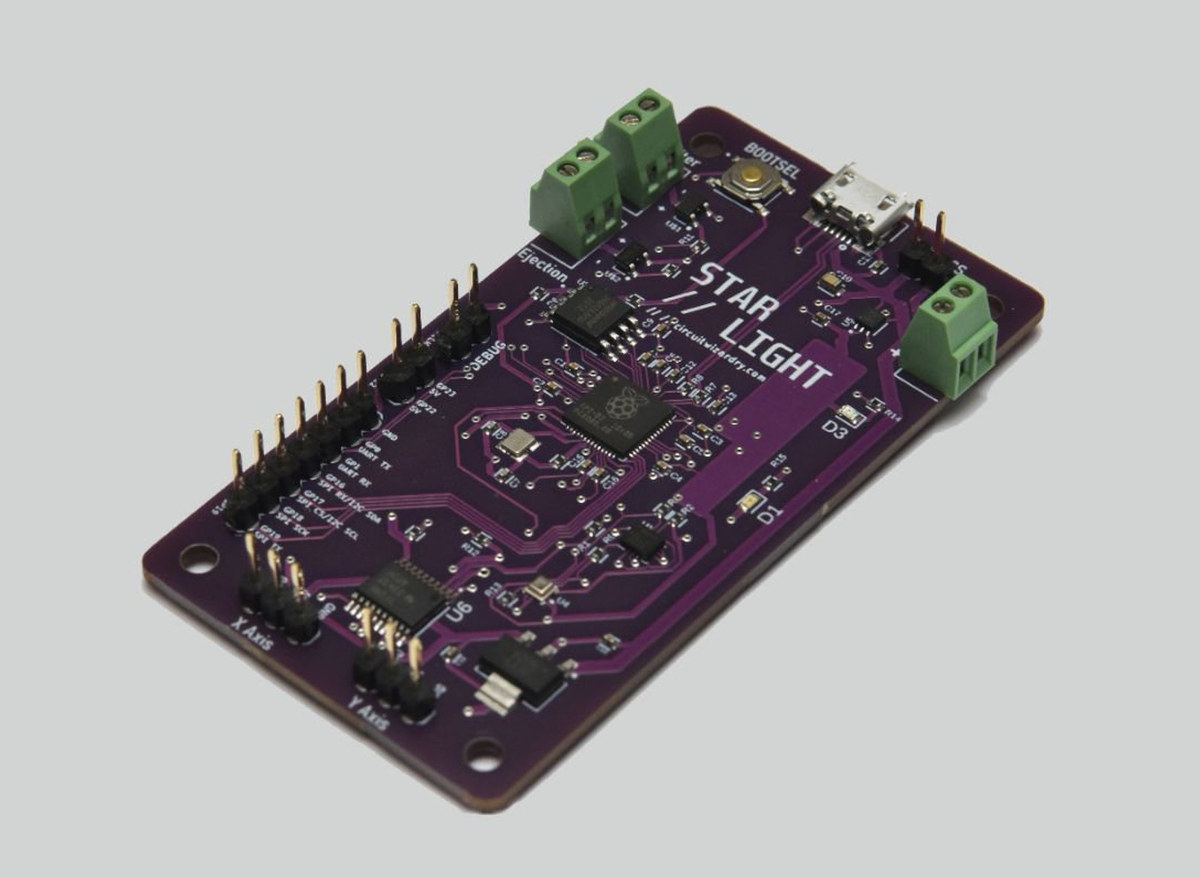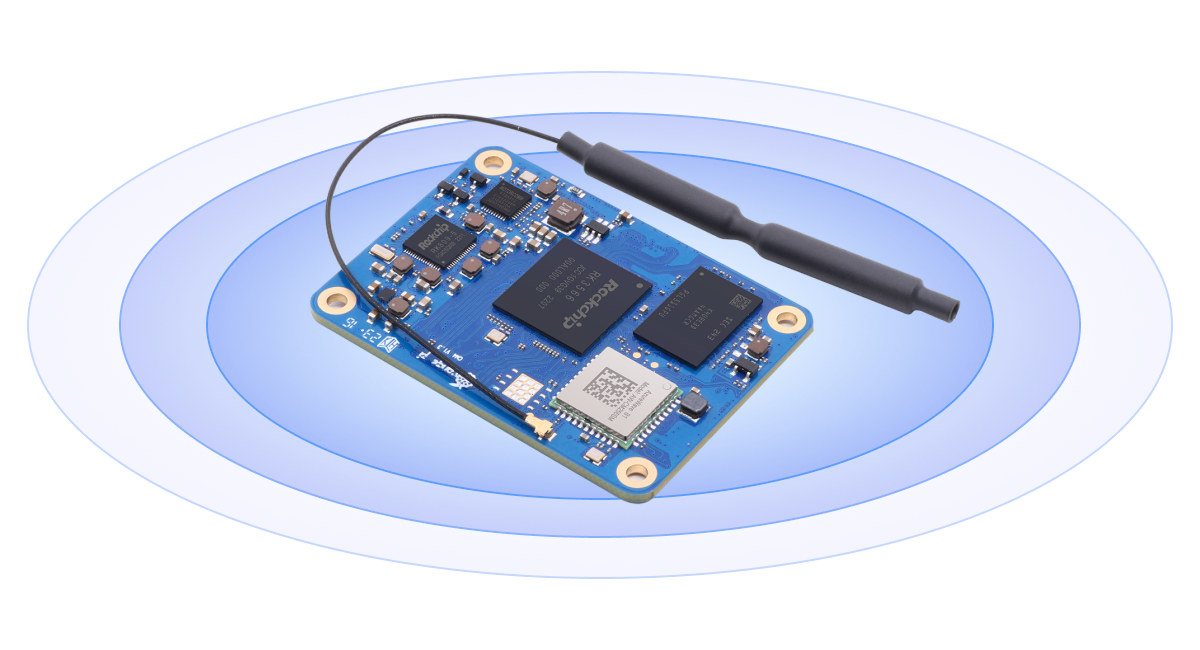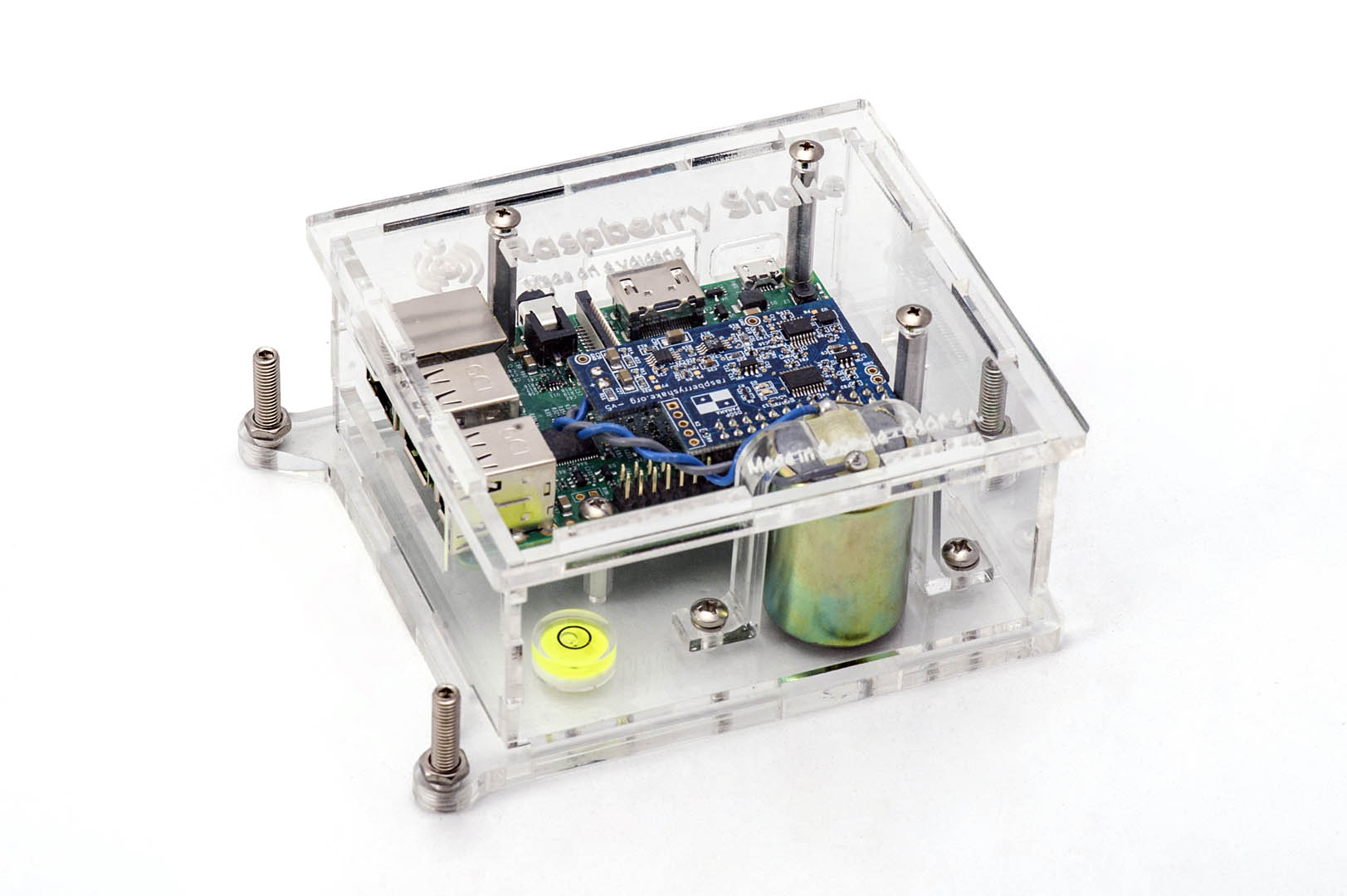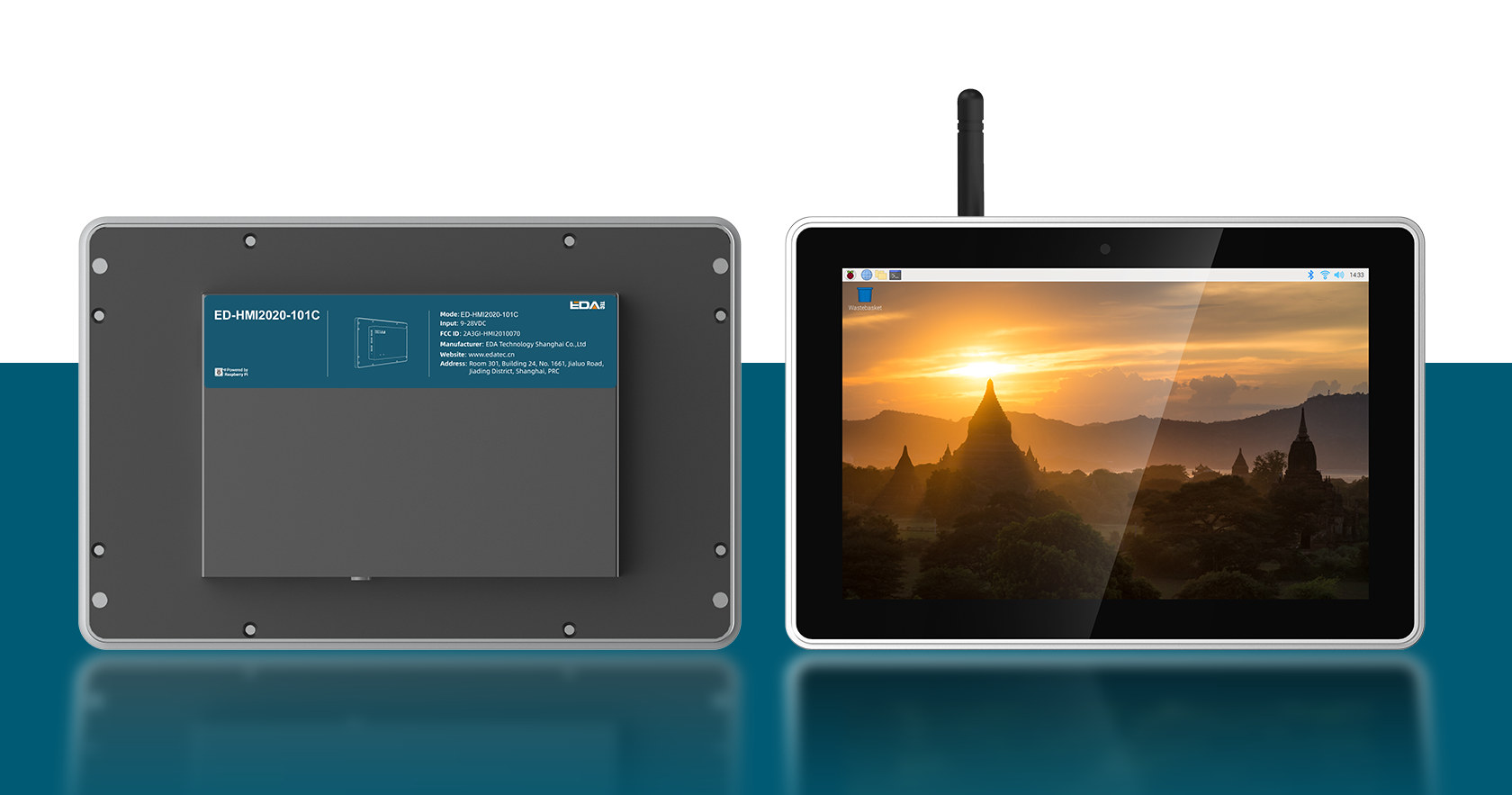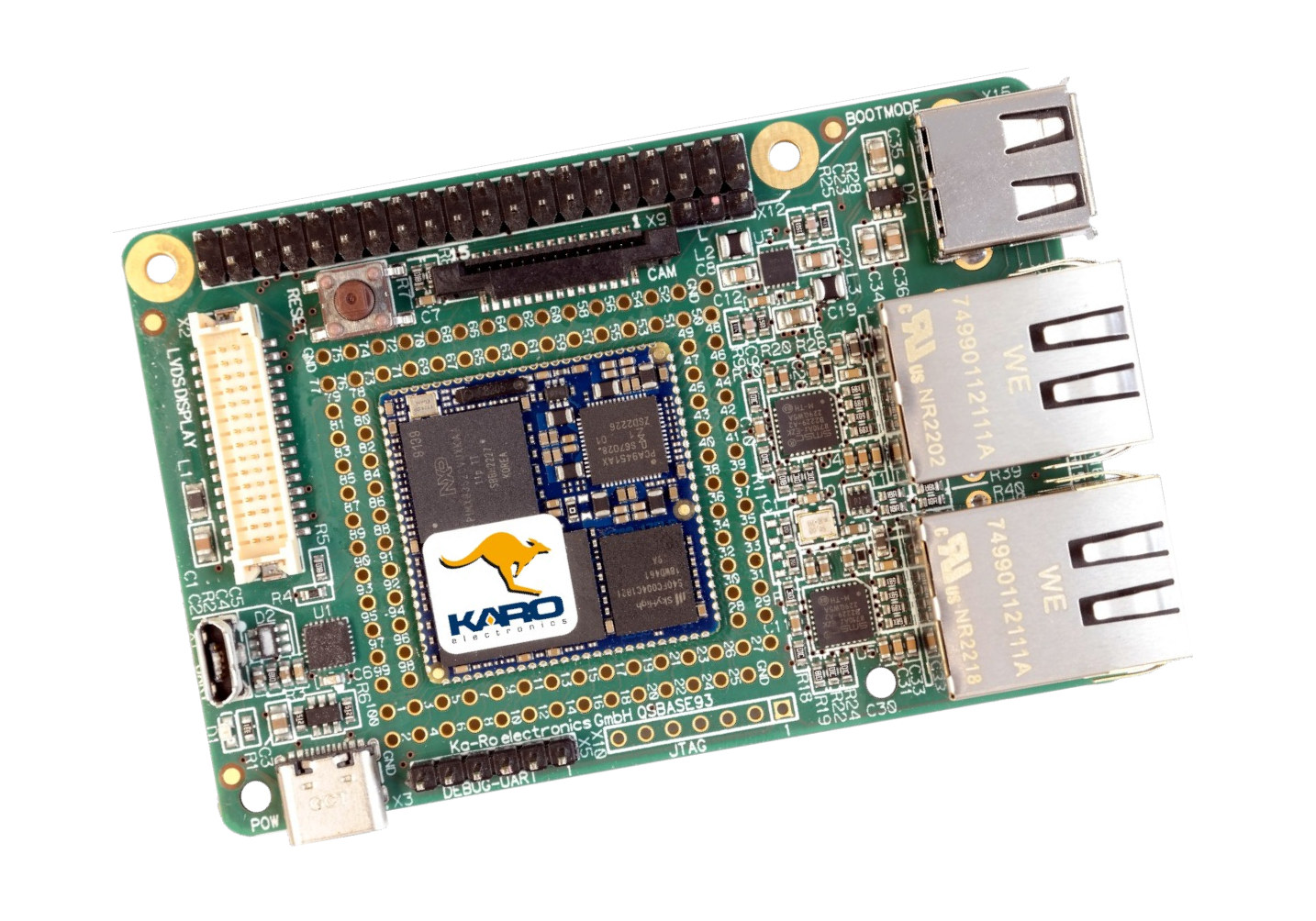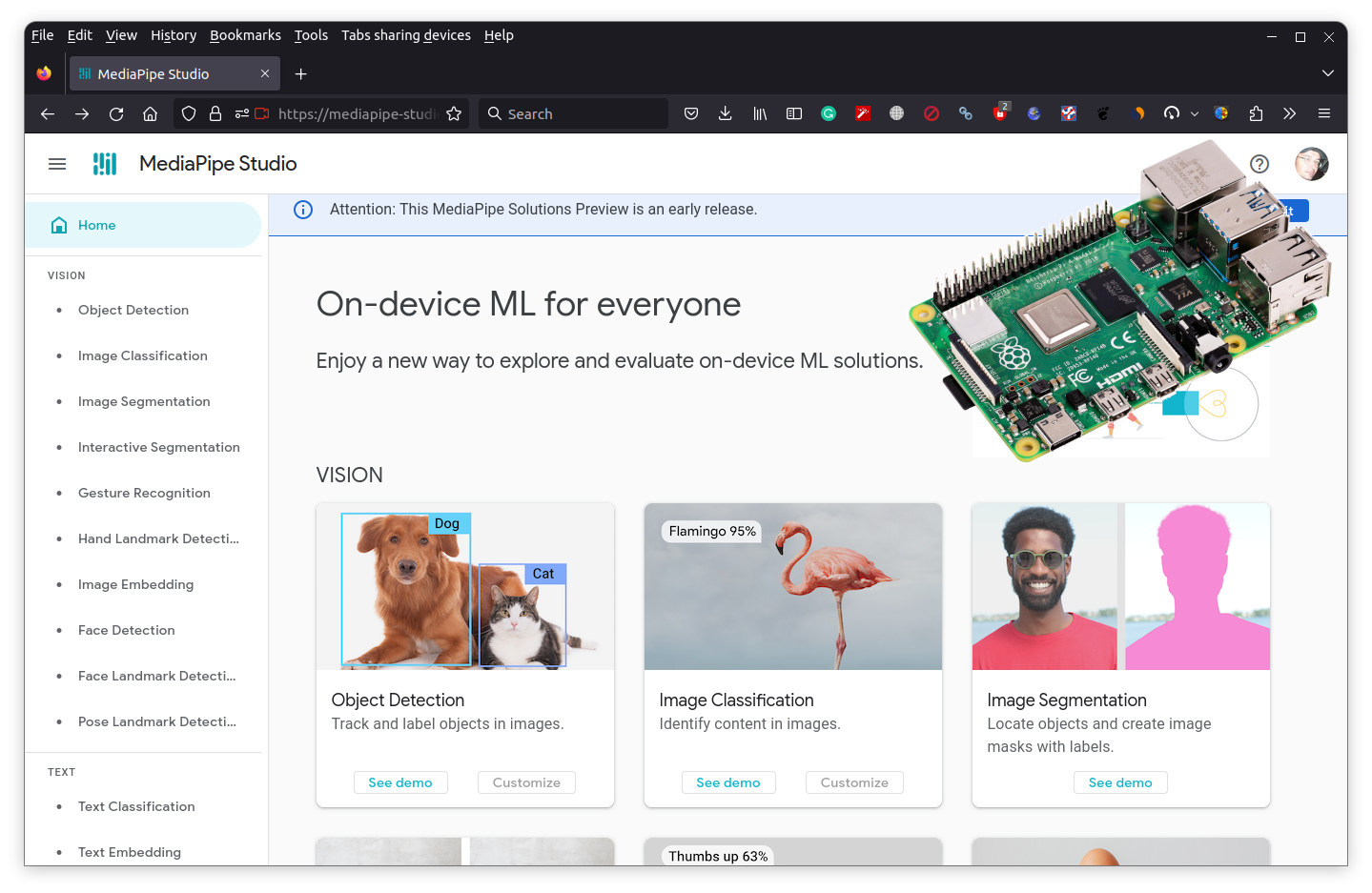The Haxophone is an unusual Raspberry Pi expansion board that transforms the popular SBC into a travel saxophone using mechanical keys. The hackable musical instrument is open-source hardware and OSHWA certified and comes with mechanical keys which makes it easily repairable, customizable by changing keycaps or the firmware, and at a price point cheaper than commercial digital saxophones with custom molded keys. Haxophone key features and specifications: Custom Raspberry Pi HAT PCB Tactile-feedback 5-pin mechanical switches Mechanical keycaps Airflow pressure sensor Built-in audio amplifier compatible with Raspberry Pi Zero and Zero W Serial console for hacking Weight – 180 grams OSHW certifications – PT000005 You’ll find KiCAD hardware design files, assembly instructions, documentation, and the software and firmware used with the Haxophone on GitHub. There are two main software components, first haxo-rs Rust-based driver for detecting key presses and breath in order to convert them into notes, and fluidsynth synthesizer […]
Raspberry Pi CM4 compatible RISC-V SoM features StarFive JH7110 SoC
We’ve seen many Arm-based system-on-modules following the Raspberry Pi CM4 form factor, but we’ve now got a RISC-V one courtesy of the Milk-V Mars CM CPU module powered by a StarFive JH7110 quad-core RISC-V SoC. The RISC-V module comes with up to 8GB RAM, a 16MB SPI flash, an optional eMMC flash, onboard GbE PHY, and a wireless module with WiFi 5 and Bluetooth 5.2 plus the two 100-pin board-to-board connectors offering (partial) compatibility with carrier boards made for the Raspberry Pi Compute Module 4. Specifications: SoC – StarFive JH7110 CPU – Quad-core RISC-V processor (RV64GC) at up to 1.5GHz GPU – Imagination BXE-4-32 GPU with support for OpenCL 1.2, OpenGL ES 3.2, Vulkan 1.2 VPU H.264 & H.265 4Kp60 decoding H.265 1080p30 encoding JPEG encoder / decoder System Memory – 2GB, 4GB, or 8GB LPDDR4 Storage SDIO 2.0 (options to eMMC) 16MB NOR flash Networking Gigabit Ethernet PHY (YT8513C) […]
STARLIGHT – A Raspberry Pi RP2040 board for rockets
Circuit Wizardry’s STARLIGHT is a rocket control board based on Raspberry Pi RP2040 microcontroller and designed for small 75mm model rockets. The board features rocket control-specific I/Os such as Igniter and Ejection pins each connected to a MOSFET, two headers for 5V servos, plus some sensors and 3.3V or 5V GPIOs for expansion. STARLIGHT specifications: Microcontroller – Raspberry Pi RP2040 dual-core Arm Cortex-M0+ MCU @ 133 MHz with 264KB SRAM Storage – 16MB flash for firmware and flight data USB – 1x Micro USB port for programming Rocket control Igniter via 2-pin terminal block and AO3400 MOSFET (pulse current up to 30A) used with ignition systems to automatically light your engine. Ejection via 2-pin terminal and AO3400 MOSFET Servo control 2x 3-pin servo outputs for optional thrust loop vector control interface (X Axis and Y axis on board) Level shifter to allow the use of 5V servos with the 3.3V […]
Orange Pi Compute Module 4 – A low-cost Rockchip RK3566-powered alternative to Raspberry Pi CM4
Orange Pi Compute Module 4 is a system-on-module mechanically and electrically compatible with the Raspberry Pi CM4, but powered by a Rockchip RK3566 quad-core Arm Cortex-A55 AI processor just like the Radxa CM3 introduced a few years ago, or more recently the Banana Pi BPI-CM2 (RK3568). The new module, also called Orange Pi CM4 for shorts, comes with 1GB to 8GB RAM, 8GB to 128GB eMMC flash, and an optional 128/256MBit SPI flash, as well as a Gigabit Ethernet PHY and on-board WiFi 5 and Bluetooth 5.0. It comes with the two 100-pin high-density connectors found on the Raspberry Pi CM4, and a smaller 24-pin connector for extra I/Os. Orange Pi Compute Module 4 specifications: SoC – Rockchip RK3566 quad-core Arm Cortex-A55 processor @ 1.8 GHz with Arm Mali-G52 2EE GPU, 0.8 TOPS AI accelerator, 4Kp60 H.265/H.264/VP9 video decoding, 1080p100f H.265/H.264 video encoding System Memory – 1GB, 2GB, 4GB, or […]
Raspberry Shake HAT brings earthquake monitoring to the Raspberry Pi SBC
Raspberry Shake is a family of Raspberry Pi HATs and full seismograph and infrasound monitors designed to enable earthquake monitoring on the popular single board computer Raspberry Pi Shake and Boom (for acoustic monitoring) HATs have been around for a few years, but I only learned about it now through an article on The MagPi Magazine where Branden Christensen, Business Steward, and Mike Hotchkiss, Marketing Director, were interviewed, so I decided to have a closer look. Four main models of the Raspberry Shake are available: RS1D vertical motion seismograph with a single motion velocity sensor to detect earthquakes RS3D vertical & lateral motion seismograph with one vertical & two lateral motion velocity sensors to measure earthquakes of all magnitudes RS4D “strong motion seismograph with one vertical motion velocity sensor to detect earthquakes, plus one extra vertical and two lateral accelerometer sensors for powerful earthquakes RS&BOOM seismograph & infrasound monitor that […]
EDATEC ED-HMI2020-101C – A 10.1-inch Raspberry Pi CM4-based industrial panel PC
EDATEC has launched yet another Raspberry Pi CM4-based platform for industrial applications with the ED-HMI2020-101C 10.1-inch panel PC with 1280×800 resolution, 9V to 28V wide power input, and support for an optional “extended display” via an HDMI FPC cable that also carries USB/I2C signal for the touchscreen. The system comes with up to 8GB RAM, 32GB eMMC flash, Gigabit Ethernet, optional WiFi 5 and Bluetooth 5.0, built-in stereo speakers, several other audio interfaces, as well as a 40-pin GPIO header for expansion. EDATEC ED-HMI2020-101C specifications: System-on-Module (SoM) – Raspberry Pi CM4 SoC – Broadcom BCM2711 CPU – Quad-core Cortex-A72 processor @ 1.5GHz GPU – VideoCore VI conformant with OpenGL ES 3.1 & Vulkan 1.2 VPU 4Kp60 H.265 video decoder 1080p60 H.264 video decoder 1080p30 H.264 video encoder System Memory – 1GB, 2GB, 4GB, 8GB LPDDR4-3200 SDRAM Storage – 8GB, 16GB, 32GB eMMC flash Wireless – Optional WiFi 5 and Bluetooth […]
Tiny solder-down NXP i.MX 93 System-on-Module powers credit card-sized evaluation board
Ka-Ro Electronics’ QS93 is a tiny solder-down NXP i.MX 93 System-on-Module (SoM) running Linux and designed for edge processing. The company also offers a credit card-sized evaluation board that may remind some of the Raspberry Pi with its GPIO header and general layout, but it comes with two Fast Ethernet ports and one USB 2.0 port. We’ve already covered several system-on-modules based on the NXP i.MX 93 Cortex-A55/M33 AI processor including some with high-density board-to-board connectors such as the Compulab UCM-IMX93 and Forlinx FET-MX9352-C, others with a SO-DIMM connector like the VAR-SOM-MX93, and finally some designed to be soldered on the carrier board such as the OSM-L compatible iW-RainboW-G50M, and the QS93 adds to the latter category in a tiny 27×27 mm form factor. Ka-Ro electronics QS93 specifications: SoC – NXP i.MX 93 with CPU – Up to dual-core Cortex-A55 processor @ up to 1.5 GHz Real-time core – Arm […]
MediaPipe for Raspberry Pi released – No-code/low-code on-device machine learning solutions
Google has just released MediaPipe Solutions for no-code/low-code on-device machine learning for the Raspberry Pi (and an iOS SDK) following the official release in May for Android, web, and Python, but it’s been years in the making as we first wrote about the MediaPipe project back in December 2019. The Raspberry Pi port is an update to the Python SDK and supports audio classification, face landmark detection, object detection, and various natural language processing tasks. MediaPipe Solutions consists of three components: MediaPipe Tasks (low-code) to create and deploy custom end-to-end ML solution pipelines using cross-platform APIs and libraries MediaPipe Model Maker (low-code) to create custom ML models MediaPipe Studio (no-code) webpage to create, evaluate, debug, benchmark, prototype, and deploy production-level solutions. You can try it out directly in your web browser at least on PC and I could quickly test the object detection on Ubuntu 22.04. MediaPipe Tasks can be […]


